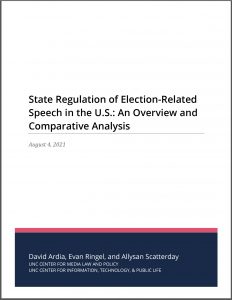 I’m excited to announce that the UNC Center for Media Law and Policy, in partnership with the Center for Information, Technology, and Public Life (CITAP), just published a research report titled State Regulation of Election-Related Speech in the U.S.: An Overview and Comparative Analysis.
I’m excited to announce that the UNC Center for Media Law and Policy, in partnership with the Center for Information, Technology, and Public Life (CITAP), just published a research report titled State Regulation of Election-Related Speech in the U.S.: An Overview and Comparative Analysis.
The report presents a comprehensive analysis of state efforts to regulate the content of election-related speech and is part of an ongoing multi-method research project focused on how platforms and digital media are changing electoral politics. It extends and builds on a report the Center published with CITAP in September 2020, Regulating the Political Wild West: State Efforts to Disclose Sources of Online Political Advertising, that examined disclosure and recordkeeping regulations for online political advertising.
You might be thinking, given the extent of misinformation associated with the last election, that there are no laws against lying in politics. It turns out that the opposite is true. Although the federal government has largely stayed out of regulating the content of election-related speech, the states have been surprisingly active in passing laws that prohibit false statements associated with elections. By our count, forty-eight states and the District of Columbia have such laws!
For this report, we reviewed more than 125 state statutes that regulate the content of election-related speech. These laws take one of two basic forms: statutes that directly target the content of election-related speech, and generally applicable statutes that indirectly implicate election-related speech by prohibiting intimidation or fraud associated with an election.
What we found is that these election-speech statutes deviate significantly from longstanding theories of liability for false speech. First, the statutes cover a broader range of speech than has traditionally been subject to government restriction: the statutes cover everything from merely derogatory statements about candidates (defamation requires false statements that create a degree of moral opprobrium) to false information about ballot measures, voting procedures, and incumbency. Second, a substantial number of the statutes impose liability regardless of whether the speaker knew the information was false or acted negligently.
Obviously, many of the statutes could be subject to significant First Amendment challenges. For purposes of this report, however, we have not made any assessment as to whether specific statutes are constitutional. We’ll be doing that examination in a later phase of this project.
To aid in the analysis and comparison of the statutes, we created a multi-level taxonomy of the types of speech the statutes target and cataloged which states have statutes that fall within each category. In the appendix, we provide a summary for each state that outlines the relevant statutory provisions and provides a brief description of the restrictions the statutes impose as well as the types of speakers to which they apply.
Political speech has long been viewed as residing at the core of the First Amendment’s protections for speech. Yet it has become increasingly clear that lies and other forms of misinformation associated with elections are corrosive to democracy. Regardless of whether individual statutes survive First Amendment scrutiny, it is useful to examine the breadth and depth of state efforts to deal with lies, misinformation, intimidation, and fraud in elections. The surprising number of statutes already on the books clearly demonstrate that state legislatures see a problem that needs to be addressed. Moreover, apart from government efforts to impose civil and criminal liability for election-related speech, these statutes (and the taxonomy we describe in this report) can be useful to social media platforms and other intermediaries that facilitate election-related speech. If nothing else, the statutes provide a partial roadmap for identifying the types of speech – and election harms – that may warrant intervention.
The report and associated research is now up on the CITAP Digital Politics site, which includes pages for every state that outlines the relevant statutory provisions and provides a brief description of the restrictions the statutes impose as well as the types of speakers to which they apply (you can also download the report itself from SSRN).
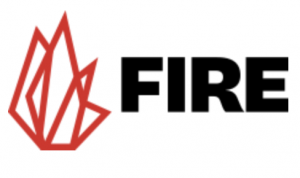 Each summer, the Center for Media Law and Policy provides financial support through its summer grants program to UNC law and graduate students taking unpaid or low-paying jobs in the fields of media law or media policy. The comments below are from Isabela Palmieri, a dual degree JD/MA student at the UNC School of Law and UNC Hussman School of Journalism and Media, who interned at the Foundation for Individual Rights in Education (FIRE) in summer 2019 and received one of the Center’s grants:
Each summer, the Center for Media Law and Policy provides financial support through its summer grants program to UNC law and graduate students taking unpaid or low-paying jobs in the fields of media law or media policy. The comments below are from Isabela Palmieri, a dual degree JD/MA student at the UNC School of Law and UNC Hussman School of Journalism and Media, who interned at the Foundation for Individual Rights in Education (FIRE) in summer 2019 and received one of the Center’s grants:
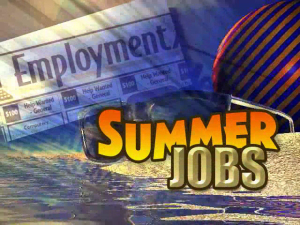 Are you a Carolina student interested in pursuing a career in media law or policy? Are you worried that you won’t be able to take that summer job in Atlanta, Los Angeles, New York, or Washington, because it’s just too expensive to live there? Or perhaps you’ll be working remotely from Chapel Hill (or elsewhere) and the job doesn’t pay very much?
Are you a Carolina student interested in pursuing a career in media law or policy? Are you worried that you won’t be able to take that summer job in Atlanta, Los Angeles, New York, or Washington, because it’s just too expensive to live there? Or perhaps you’ll be working remotely from Chapel Hill (or elsewhere) and the job doesn’t pay very much?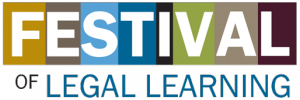 One of the biggest annual events at the UNC School of Law is the
One of the biggest annual events at the UNC School of Law is the 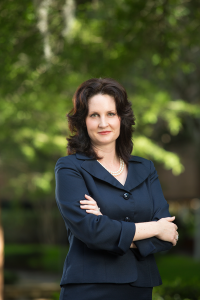 I’m thrilled to announce that
I’m thrilled to announce that 